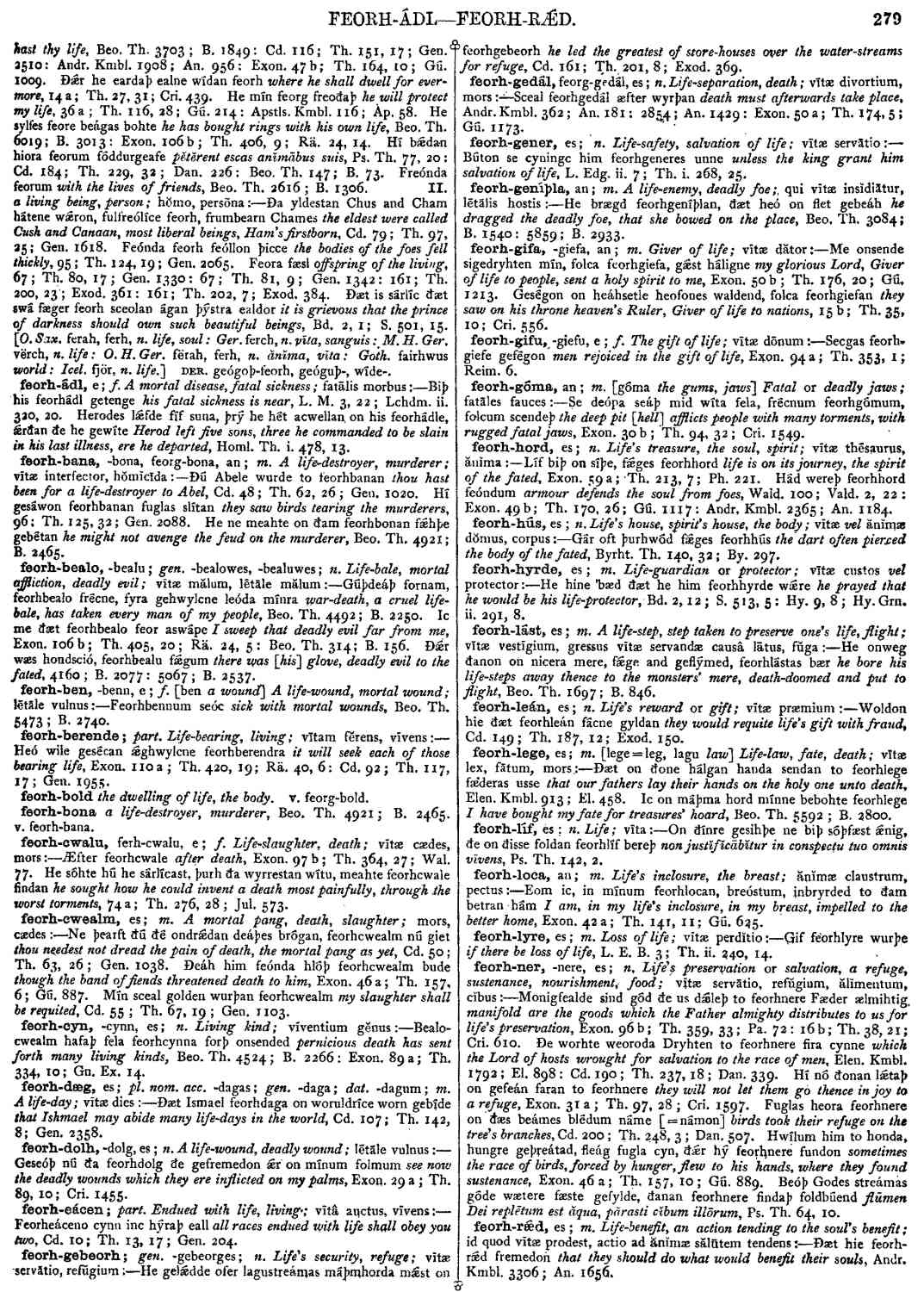feorh-ner
- noun [ neuter ]
-
Monigfealde sind gód ðe us dǽleþ to feorhnere Fæder ælmihtig
manifold are the goods which the Father almighty distributes to us for life's preservation,
- Exon. 96 b ;
- Th. 359, 33 ;
- Pa. 72: 16 b ;
- Th. 38, 21 ;
- Cri. 610.
-
Ðe worhte weoroda Dryhten to feorhnere fira cynne
which the Lord of hosts wrought for salvation to the race of men,
- Elen. Kmbl. 1792 ;
- El. 898: Cd. 190 ;
- Th. 237, 18 ;
- Dan. 339.
-
Hí nó ðonan lǽtaþ on gefeán faran to feorhnere
they will not let them go thence in joy to a refuge,
- Exon. 31 a ;
- Th. 97, 28 ;
- Cri. 1597.
-
Fuglas heora feorhnere on ðæs beámes blédum náme[ = námon]
birds took their refuge on the tree's branches,
- Cd. 200 ;
- Th. 248, 3 ;
- Dan. 507.
-
Hwílum him to honda, hungre geþreátad, fleág fugla cyn, ðǽr hý feorhnere fundon
sometimes the race of birds, forced by hunger, flew to his hands, where they found sustenance,
- Exon. 46 a ;
- Th. 157, 10 ;
- Gú. 889.
-
Beóþ Godes streámás góde wætere fæste gefylde, ðanan feorhnere findaþ foldbúend
flūmen Dei replētum est ăqua, părasti cĭbum illōrum,
- Ps. Th. 64, 10.
Bosworth, Joseph. “feorh-ner.” In An Anglo-Saxon Dictionary Online, edited by Thomas Northcote Toller, Christ Sean, and Ondřej Tichy. Prague: Faculty of Arts, Charles University, 2014. https://bosworthtoller.com/10427.
Checked: 1